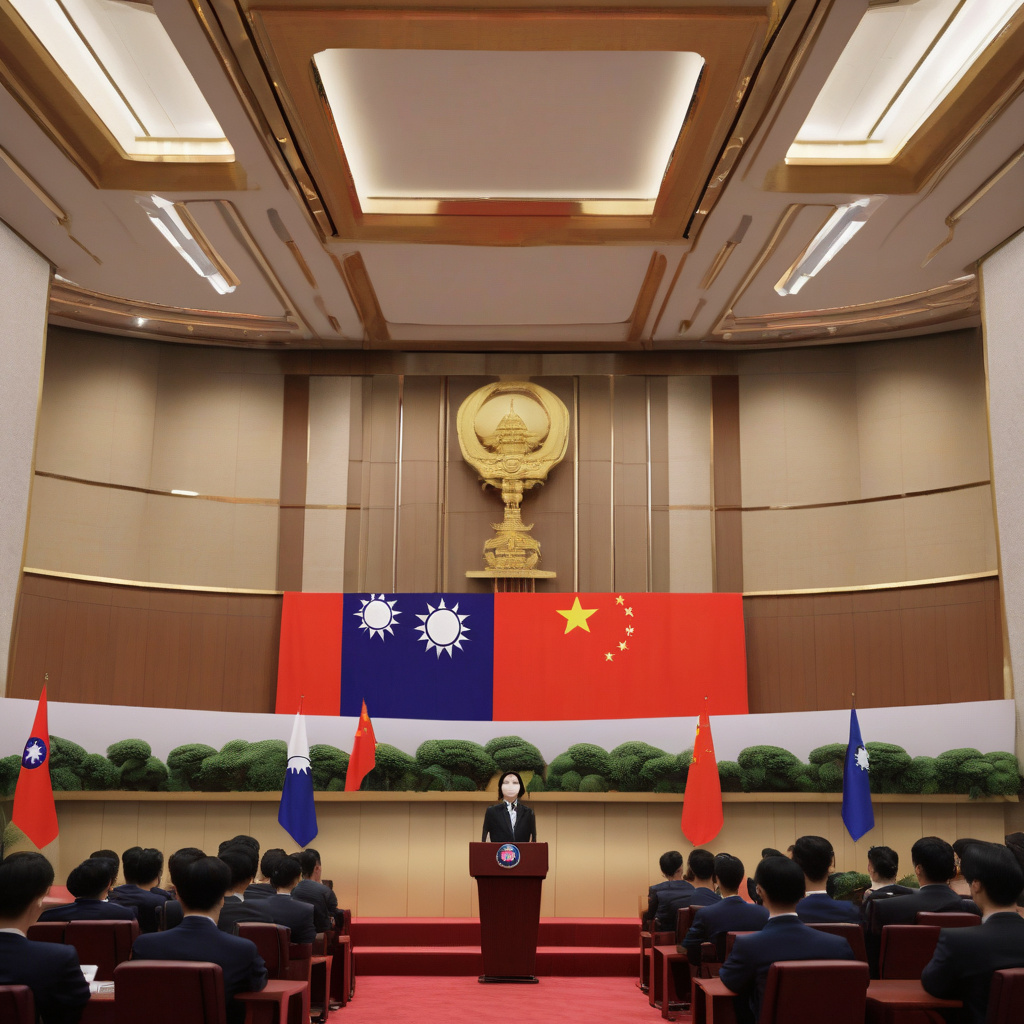Taiwan Refutes China’s Accusations of Hacking: Unveiling the Truth Behind the Claims
In the realm of cybersecurity, accusations and counter-accusations are not uncommon. The recent claim by China, accusing Taiwan of orchestrating cyberattacks on its military and government systems, has sparked a heated debate in the digital world. However, Taipei has vehemently denied these allegations, labeling them as a mere smokescreen aimed at undermining the stability of its institutions.
The volatile relationship between China and Taiwan is no secret, with both entities locked in a long-standing political and territorial dispute. In this context, accusations of hacking carry significant weight, as they can not only strain diplomatic relations but also have far-reaching implications on national security and public trust.
China’s assertion that Taiwan-backed hackers targeted its crucial systems is a serious allegation with potentially grave consequences. The narrative put forth by Beijing paints Taiwan as an aggressor in the digital domain, seeking to gain an unfair advantage through illicit means. Such claims, if proven true, could escalate tensions between the two sides and trigger a new wave of retaliatory actions in cyberspace.
However, Taiwan’s swift rebuttal of these accusations sheds light on a different perspective. Taipei argues that China’s claims are baseless and part of a larger disinformation campaign aimed at tarnishing Taiwan’s reputation on the global stage. By casting doubt on the veracity of the allegations, Taiwan seeks to defend its innocence and uphold its standing as a responsible player in the digital realm.
The intricacies of cyber warfare often blur the lines between truth and propaganda. In the absence of concrete evidence, it becomes challenging to ascertain the validity of hacking accusations leveled against a particular party. The digital landscape is rife with deception and misinformation, making it a fertile ground for the dissemination of false narratives and malicious agendas.
For Taiwan, the stakes are high in this war of words over hacking allegations. As a nation that prides itself on technological advancement and cybersecurity prowess, being implicated in cyberattacks can deal a severe blow to its credibility and integrity. The need to clear its name and set the record straight is paramount for Taiwan to safeguard its interests and maintain a favorable image on the global stage.
In the face of mounting pressure and scrutiny, Taiwan remains steadfast in its denial of involvement in any malicious cyber activities. The country’s cybersecurity experts continue to emphasize the importance of transparency and cooperation in addressing digital threats, advocating for a united front against cybercrime rather than engaging in a blame game that serves no constructive purpose.
As the dust settles on the allegations and counter-allegations between China and Taiwan, one thing remains clear: the realm of cybersecurity is fraught with complexities and challenges that require a nuanced and measured approach. Both parties must exercise caution in their statements and actions, mindful of the potential implications of their words on the delicate balance of power in the digital domain.
In the end, the truth behind the hacking claims may remain shrouded in ambiguity, but the impact of these accusations on the geopolitical landscape serves as a stark reminder of the high stakes involved in the world of cybersecurity. As China and Taiwan navigate the choppy waters of cyberspace, the need for vigilance, cooperation, and integrity becomes more pronounced than ever.
#Taiwan, #China, #Cybersecurity, #Hacking, #Geopolitics
